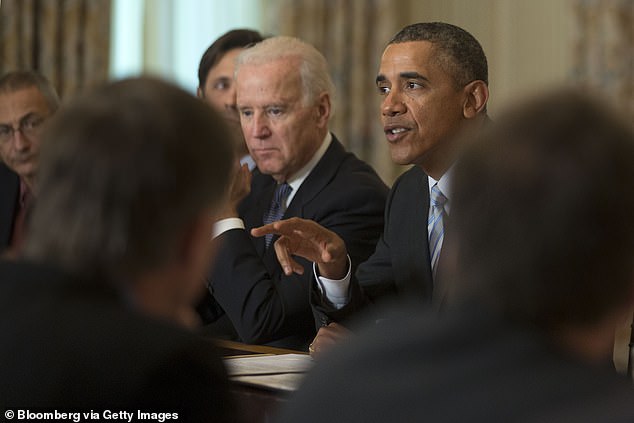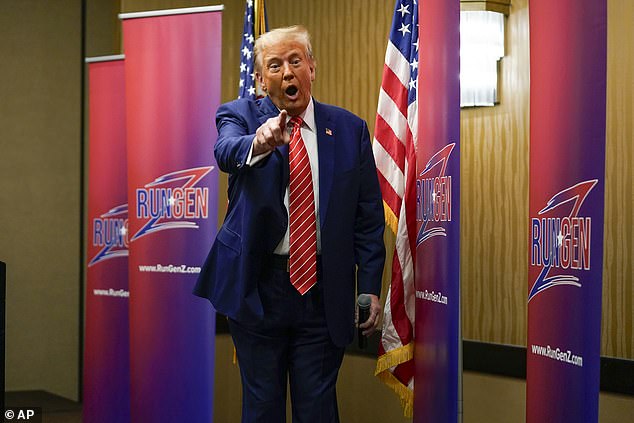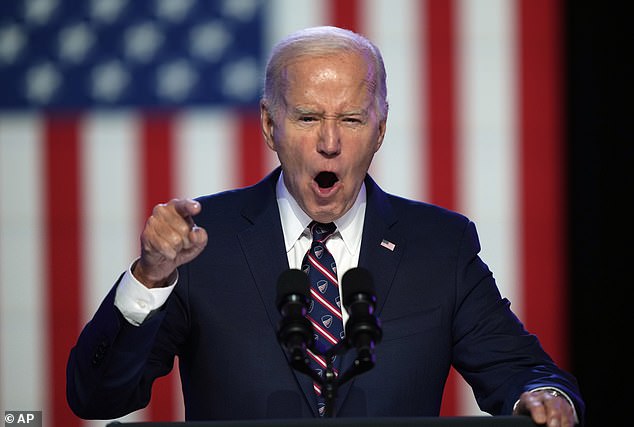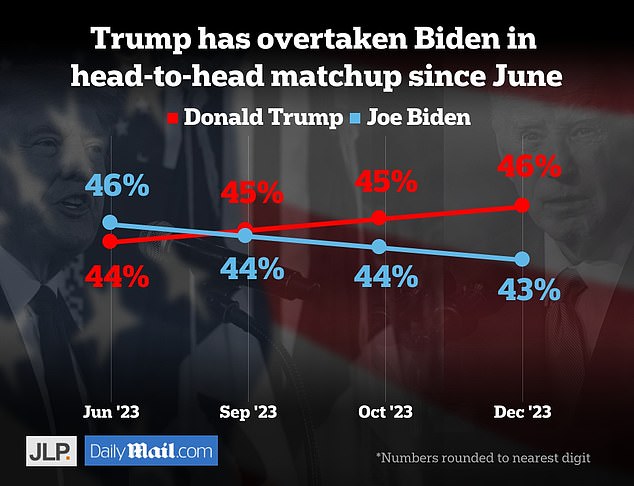How Obama held a secret lunch meeting with Biden to urge him to be 'more aggressive' – because he 'fears Trump is more formidable' than the president realizes
According to a new report, Barack Obama recently had an off-the-book lunch at the White House with President Joe Biden to share his concerns and advice about his former running mate's campaign.
Obama became “animated” as he discussed the 2024 election and Donald Trump's attempt to return to the presidency, suggesting Biden should restructure his campaign to be more agile. WashingtonPost This was reported on Saturday based on people familiar with the matter.
The lunch meeting is believed to have taken place in recent months but has not been previously reported, and Obama does not appear in the White House visitor logs, which allow exceptions for certain types of visits.
According to the Post, Obama suggested that Biden's campaign, which is headquartered in Delaware, needed to become more agile and given the authority to act without permission from the White House, where many of Biden's top advisers still operate.
At a separate lunch last summer, Obama also shared his concerns that Trump is a more formidable opponent than many Democrats realize, citing his die-hard base of loyalists, a deeply polarized country and the support of conservative media, sources told the Post.

Obama recently had an off-the-book lunch at the White House with Biden to share his concerns and advice about his former running mate's campaign. The two are seen above in 2014


Obama also reportedly shared concerns that Trump is a more formidable opponent than many Democrats realize, citing his die-hard base of loyalists.
Representatives for Obama and Biden did not immediately respond to requests for comment on Saturday.
With the Republican caucuses in Iowa starting in nine days, Trump maintains a commanding lead over his Republican rivals in the polls.
Biden, 81, has the worst approval ratings of any modern president at this stage in his term, running neck-and-neck or trailing his likely Republican opponent in the polls.
“If the election were held tomorrow, President Biden would lose,” William Galston, a senior fellow at the Brookings Institution, told AFP.
For months, Democrats have pushed to ramp up Biden's campaign as voters' concerns grow about the economy and the age of America's oldest president.
Biden did so on Friday when he kicked off 2024 with a campaign speech in Valley Forge, Pennsylvania, in which he issued a fierce condemnation of Trump.
The Democrat compared his Republican rival to the Nazis and labeled him “sick,” a “loser” and a threat to American democracy.
The question now is whether that strategy — identifying Trump as his main rival before the Republican nomination process officially begins — will be enough to energize his base in the general election.


An angry Joe Biden called Donald Trump “sick” and a “loser” in his first campaign speech of 2024, saying “we almost lost America” on January 6


In a head-to-head confrontation, Biden has seen a two-point lead turn into a three-point deficit
So far, Biden's strategy has focused on positive messages about the president's performance — especially on leading the economy out of the Covid-19 pandemic.
But “so far they haven't really changed anything,” Galston said, especially since many Americans are still feeling the effects of high food and housing prices regardless of improving government statistics.
Migration through the Mexican border remains a major problem, while there is division within his party over his support for Israel's war against Hamas, and Republicans in Congress are blocking his bid for more money for Ukraine.
Another major concern is that Biden has lost support among the black and Hispanic voters who helped him to the White House in 2020.
But perhaps Biden's greatest vulnerability is his age: He has suffered a series of outings and verbal slip-ups that Trump, who at 77 is only four years younger, has repeatedly mocked.
Galston said Biden would have to run a “vigorous campaign,” including multiple trips to battleground states and presidential debates, to convince voters he was not “evasive and senile.”
“If he can't run a strong campaign, I'm afraid that will only confirm the doubts,” he said.
